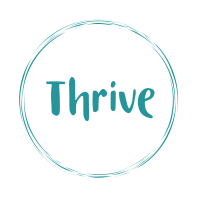Self-care is the simple but important act of caring for oneself. Self-care is one of the three essential occupations for all people, along with productivity (contributing to society through paid and unpaid work) and simply enjoying life (leisure).
We are getting all sorts of messages about how we can care for ourselves in this challenging time of social isolation. As occupational therapists, we thought it would be helpful to provide some guidance about how we can build effective and evidence based self-care into our daily lives during this time.
We have used Te Whare Tapa Wha,the Maori model of health, along with the 5 Ways to Wellbeingand Seligman’s PERMA model to base these recommendations on.
Te Whare Tapa Whā – Concept of hauora (Wellbeing/health)
Taha Tinana – Physical Wellbeing
- Get up at the usual time day and keep to your normal routine i.e. having a shower and getting dressed.
- Enrich your life by doing things with your hands – whether it is drawing, playing an instrument, baking, cooking meals or playing a game, you will feel the benefit of this.
- Move your body every day – go walking, running or biking, do yoga, dance to music, make up a circuit or follow an uTube routine.
- Spend some time outdoors every day. Whether it is sunny or raining, you will always feel better if you have spent some time outdoors.
- Go to bed at your usual time each evening.
Taha Wairua –Spiritual Wellbeing
- Create a sense of purpose for each day by setting 1, 2 or 3 small, meaningful goals. Write them down and tick them off as you achieve them.
- Practice self-compassion – show yourself kindness, understanding and care. Keep things simple and acknowledge the small wins in your day.
- Practice gratitude – think of three things you are grateful for and why each day.
- If you are living in close quarters with other people, make sure you take some time if you need to be alone.
Taha Whanau -Family and Social Wellbeing
- If you are living with other people, plans some organised activities together to connect i.e board game, movie night, meal times.
- If you are living alone, phone, Skype or zoom family and friends and connect with them that way.
- No matter what your living situation is, make it a priority to regularly connect with people by whom you feel loved, supported and understood.
Taha Hinengaro -Mental and Emotional Wellbeing
- Spend some time relaxing during the day. Try a mindfulness technique, using apps such as Smiling Mind and Headspace, a relaxation technique, patting your pet, or sitting in your garden.
- Ensure you have some time away from technology and the regular COVID-19 news.
- Do one thing every day that gives you joy, is fun or makes you laugh and smile.
- Look for opportunities to get into “flow” where you get lost in an activity or lose your awareness of time …puzzles, crafts, gardening, playing games are good for this.
- Remember the 5 Ways to Wellbeing – give, learn, connect, move, take notice.
References:
Durie, M. (2001). Mauri ora: The dynamics of Mäori health. Auckland, New Zealand: Oxford University Press.
Mulder, P. (2018). PERMA Model. Retrieved 2/04/2020 from ToolsHero: https://www.toolshero.com/psychology/perma-model/
Mental Health Foundation of New Zealand. Wellbeing. Retrieved 2/04/2020 from: https://www.mentalhealth.org.nz/home/ways-to-wellbeing/
Seligman, M. E. P. (2012). Flourish. North Sydney, N.S.W.: North Sydney, N.S.W. : William Heinemann Australia.
https://www.otnz.co.nz See this page for a detailed document on staying occupied during self-isolation by the Occupational Therapy New Zealand.
